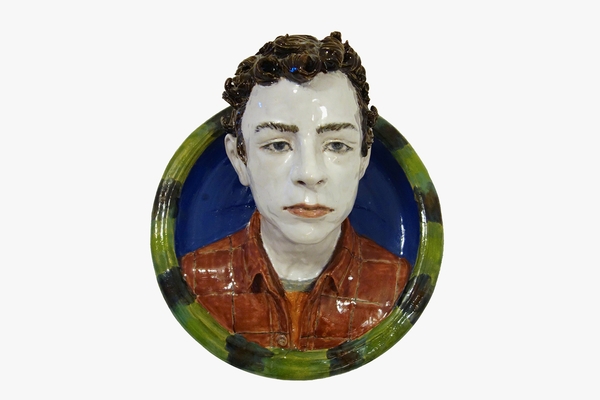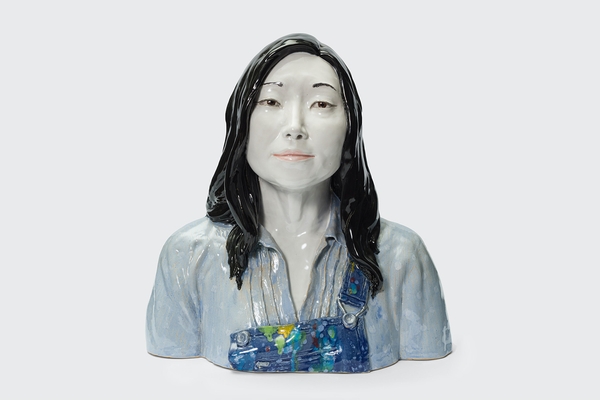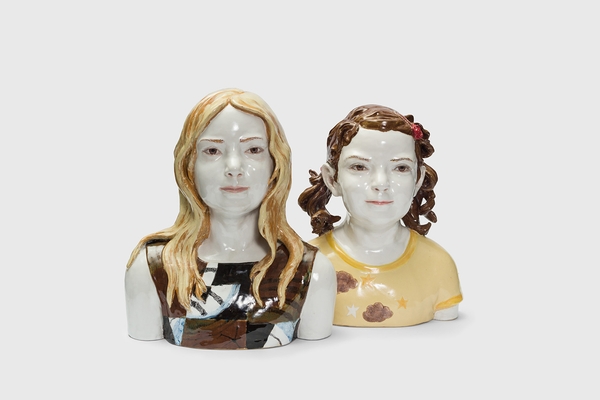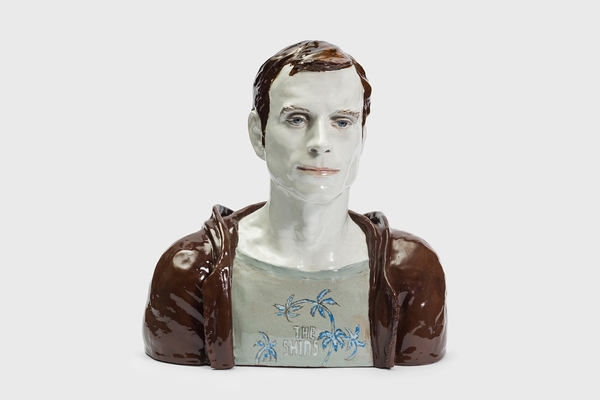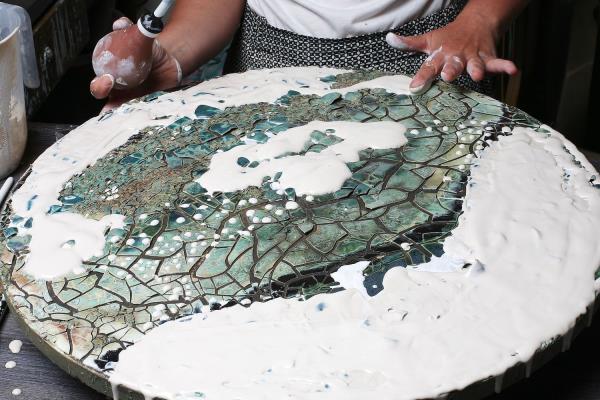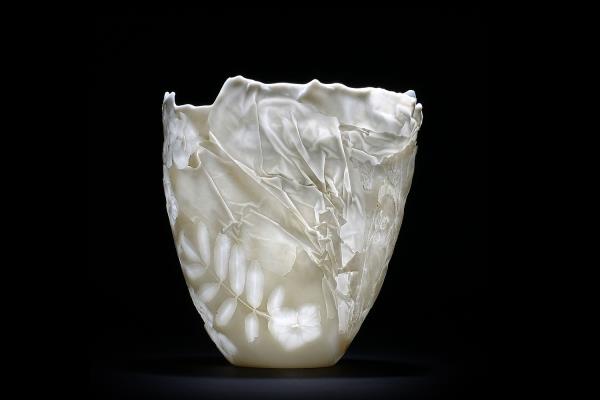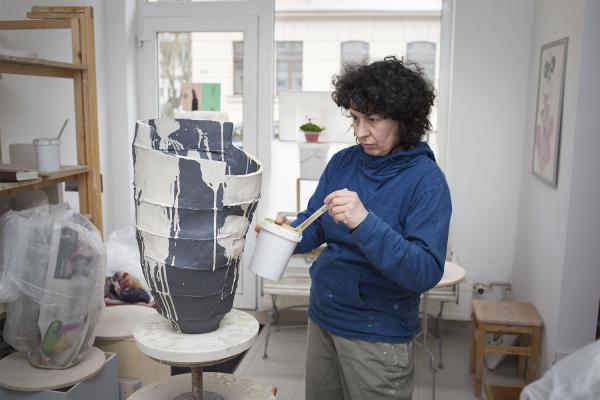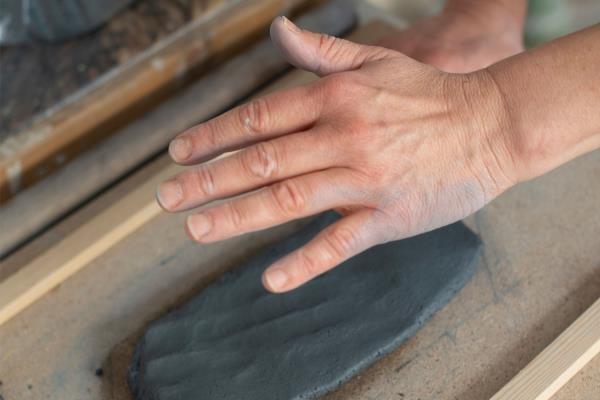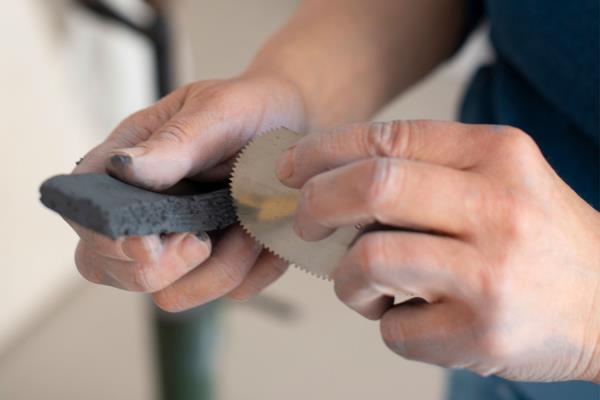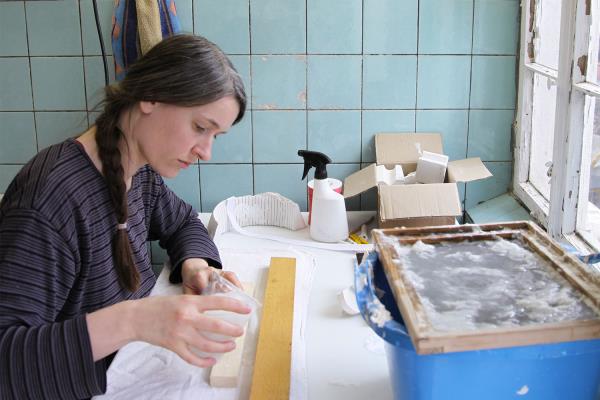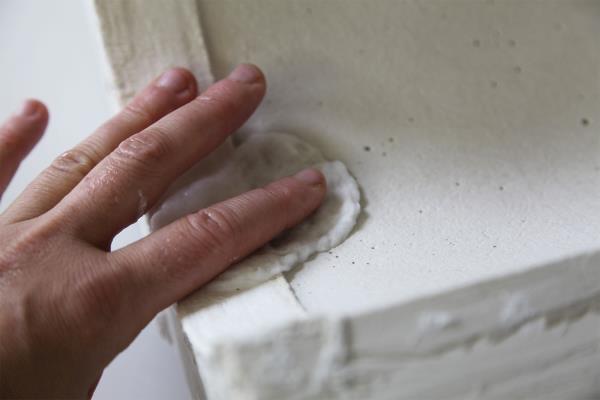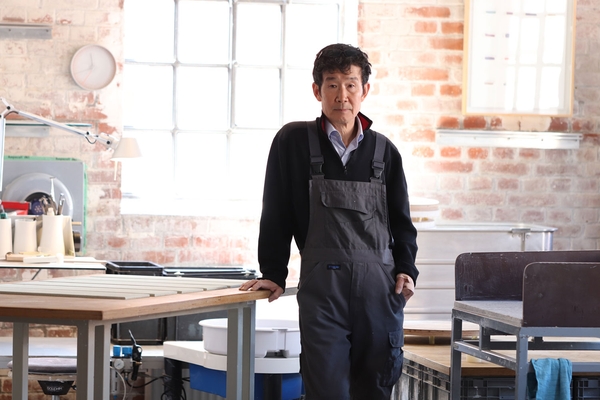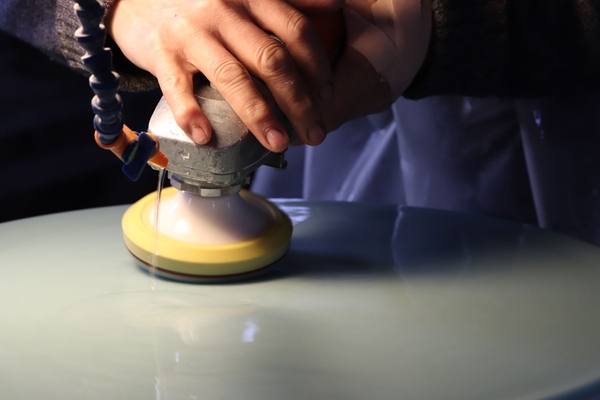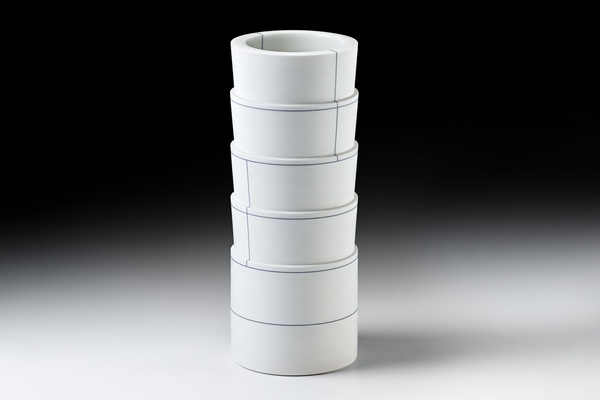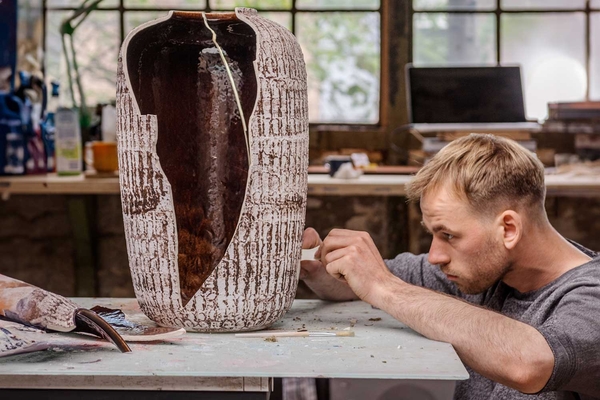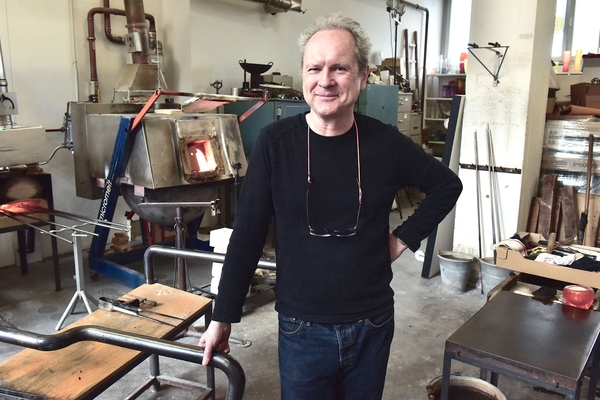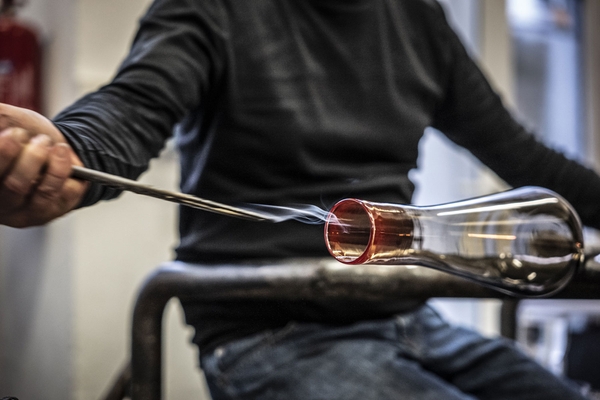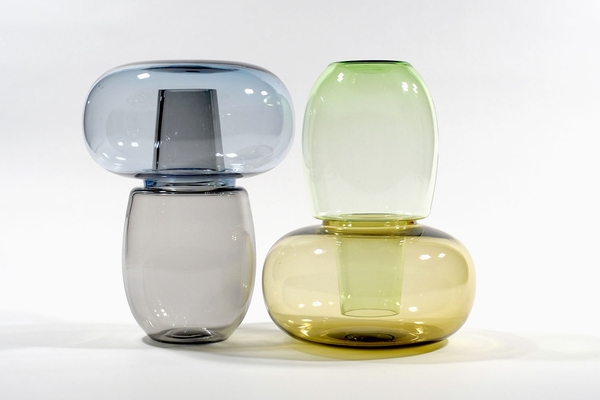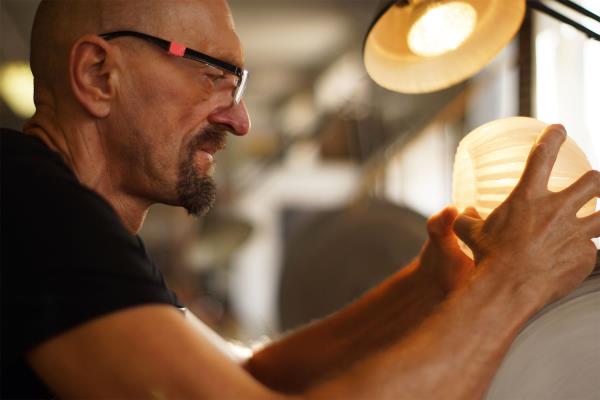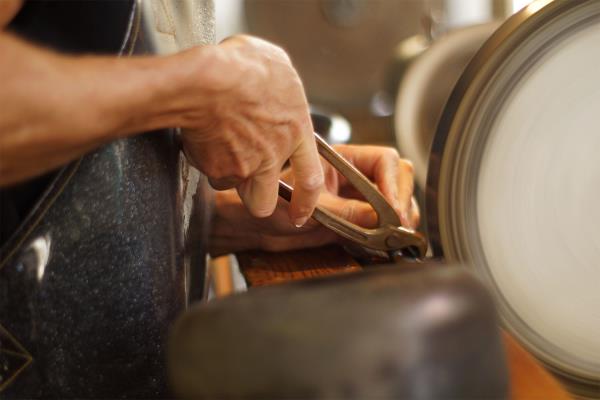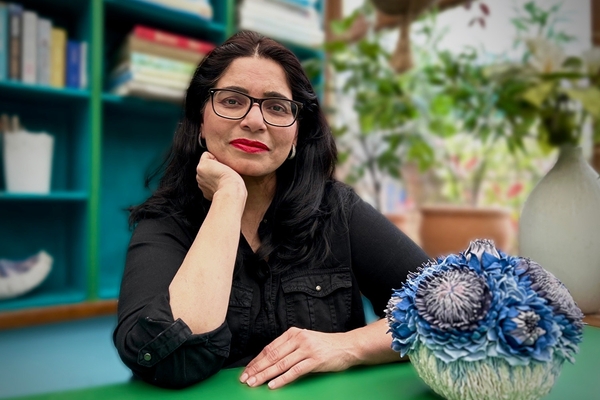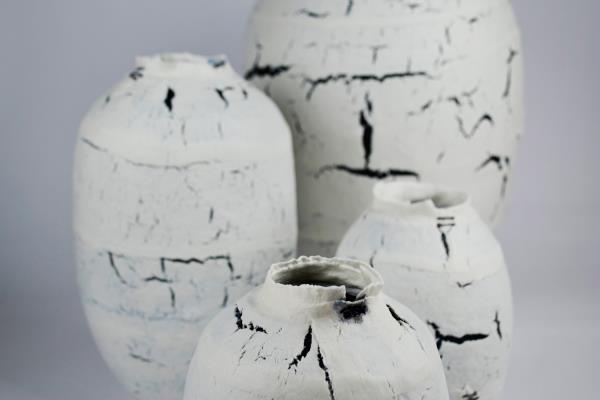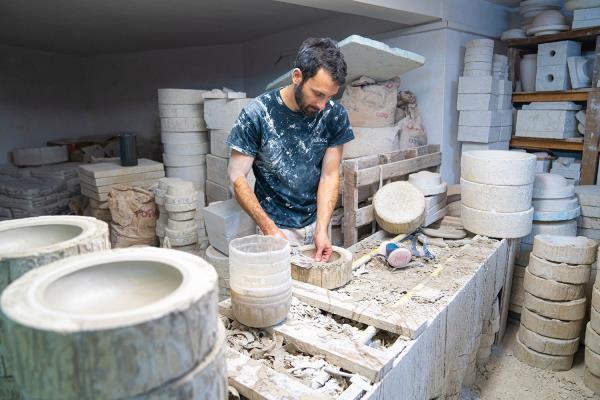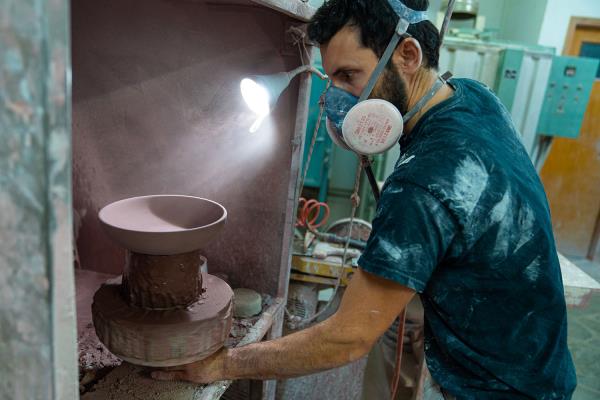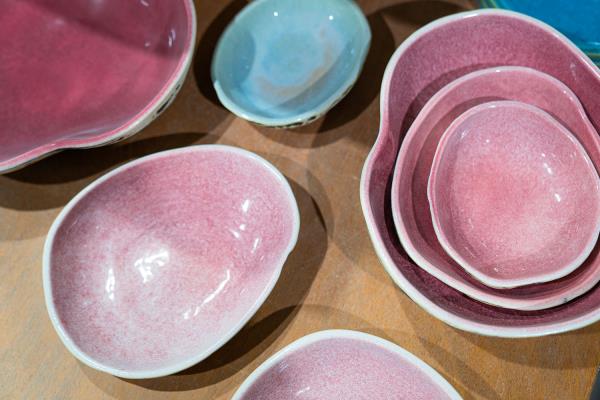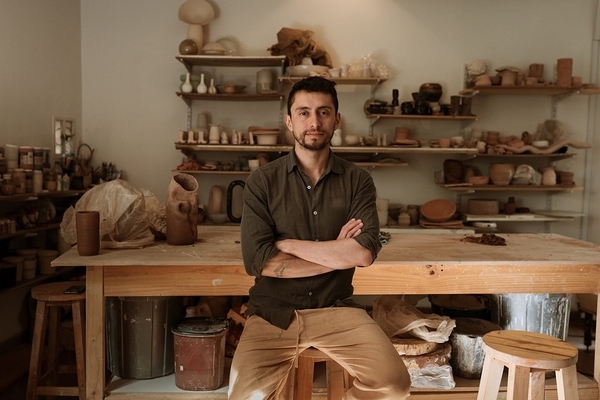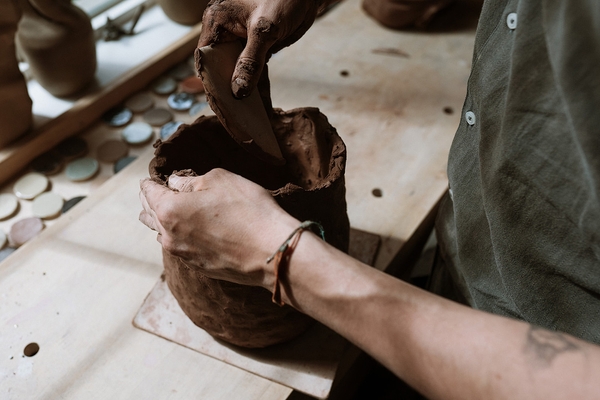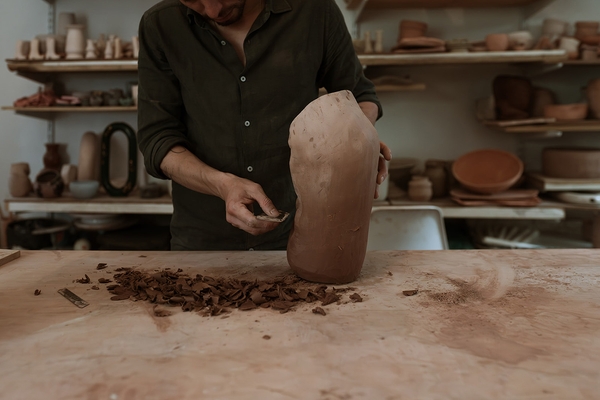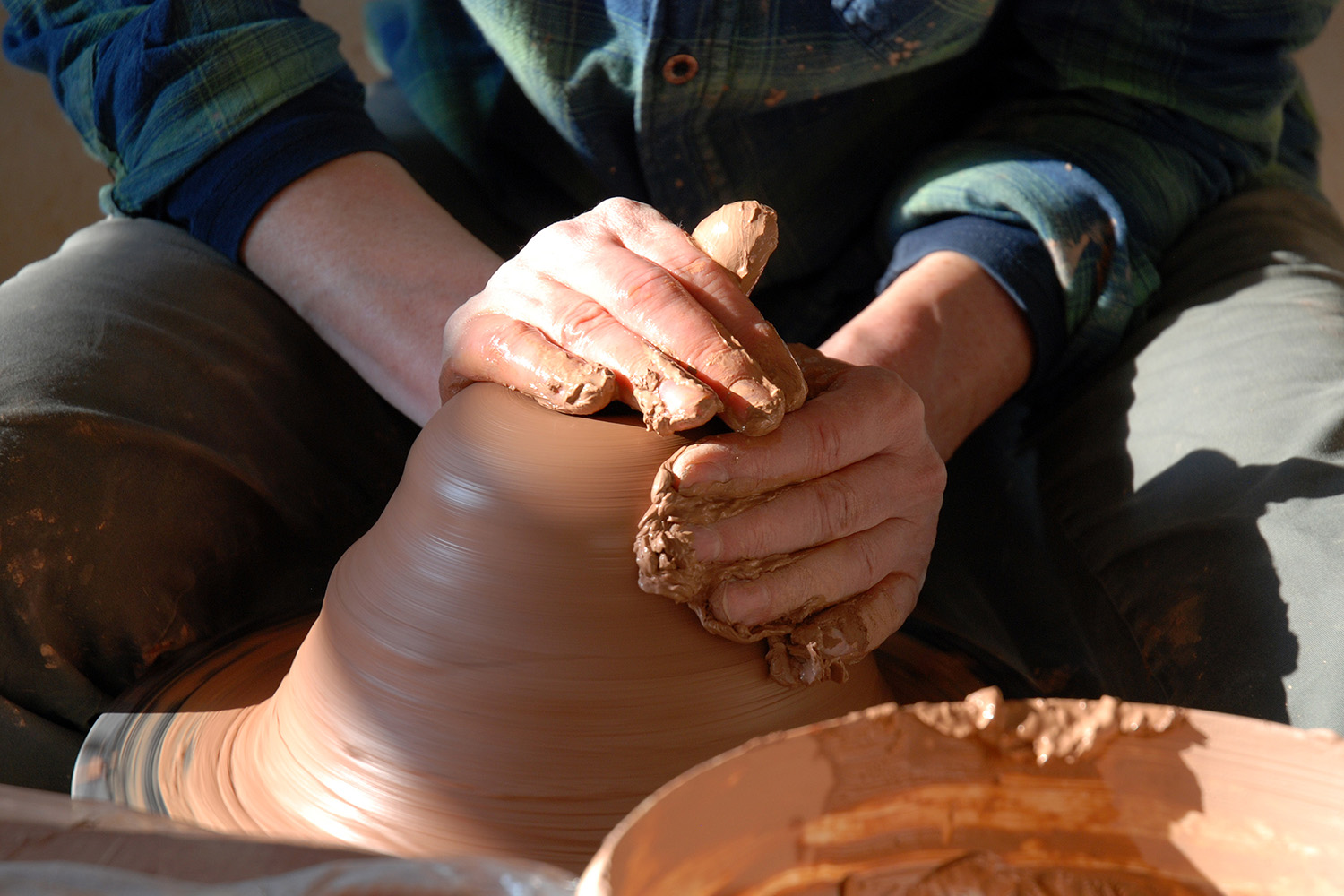
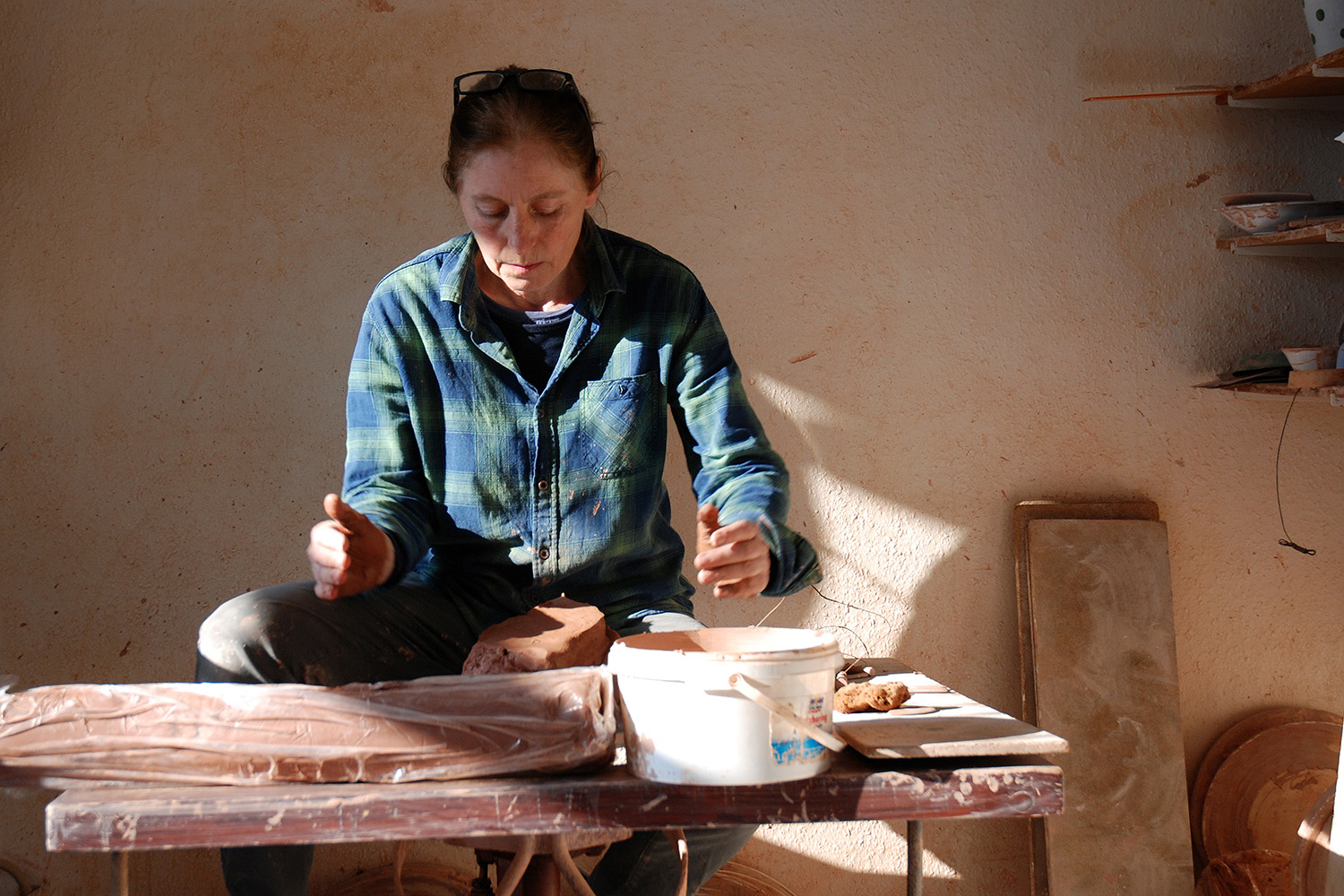
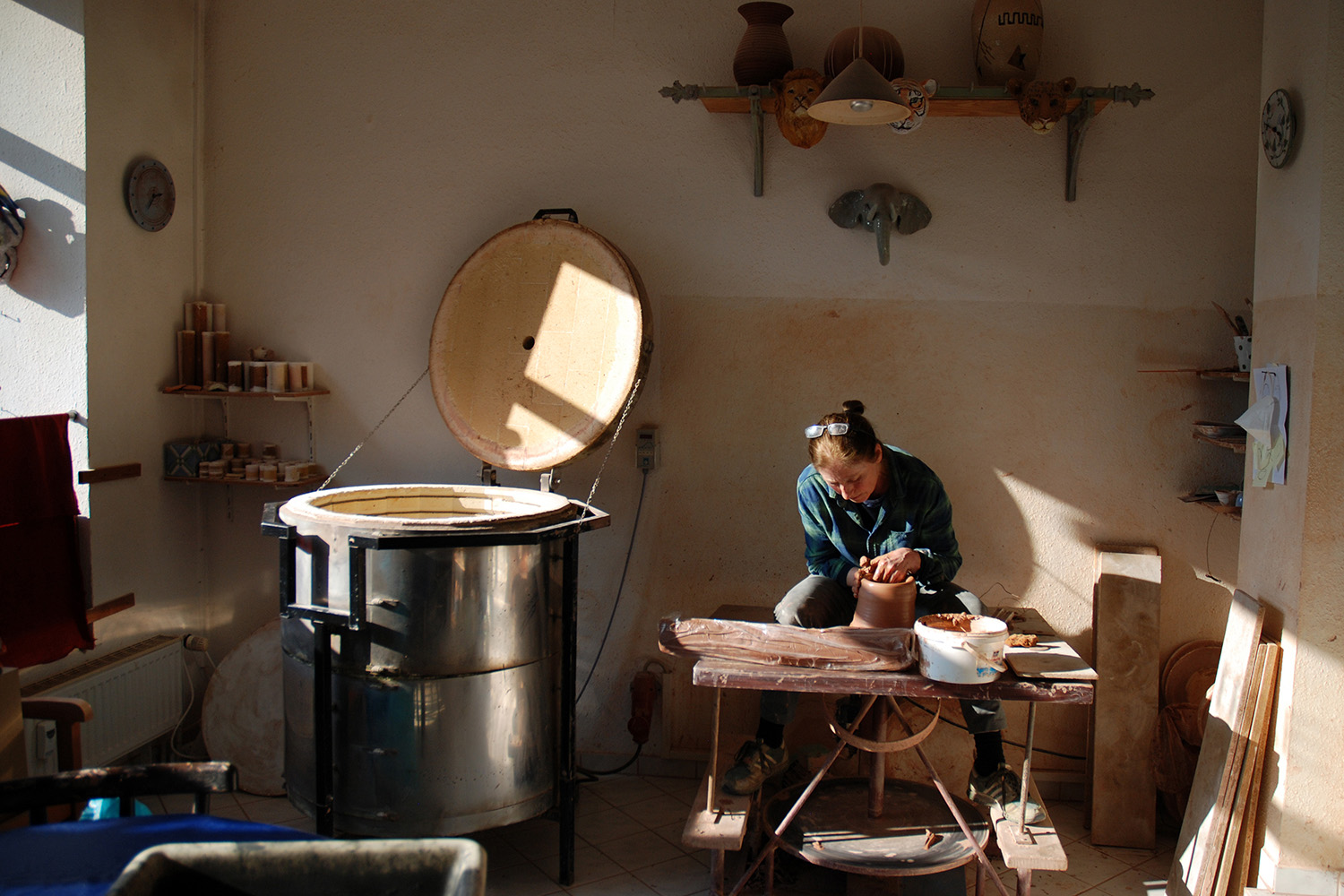
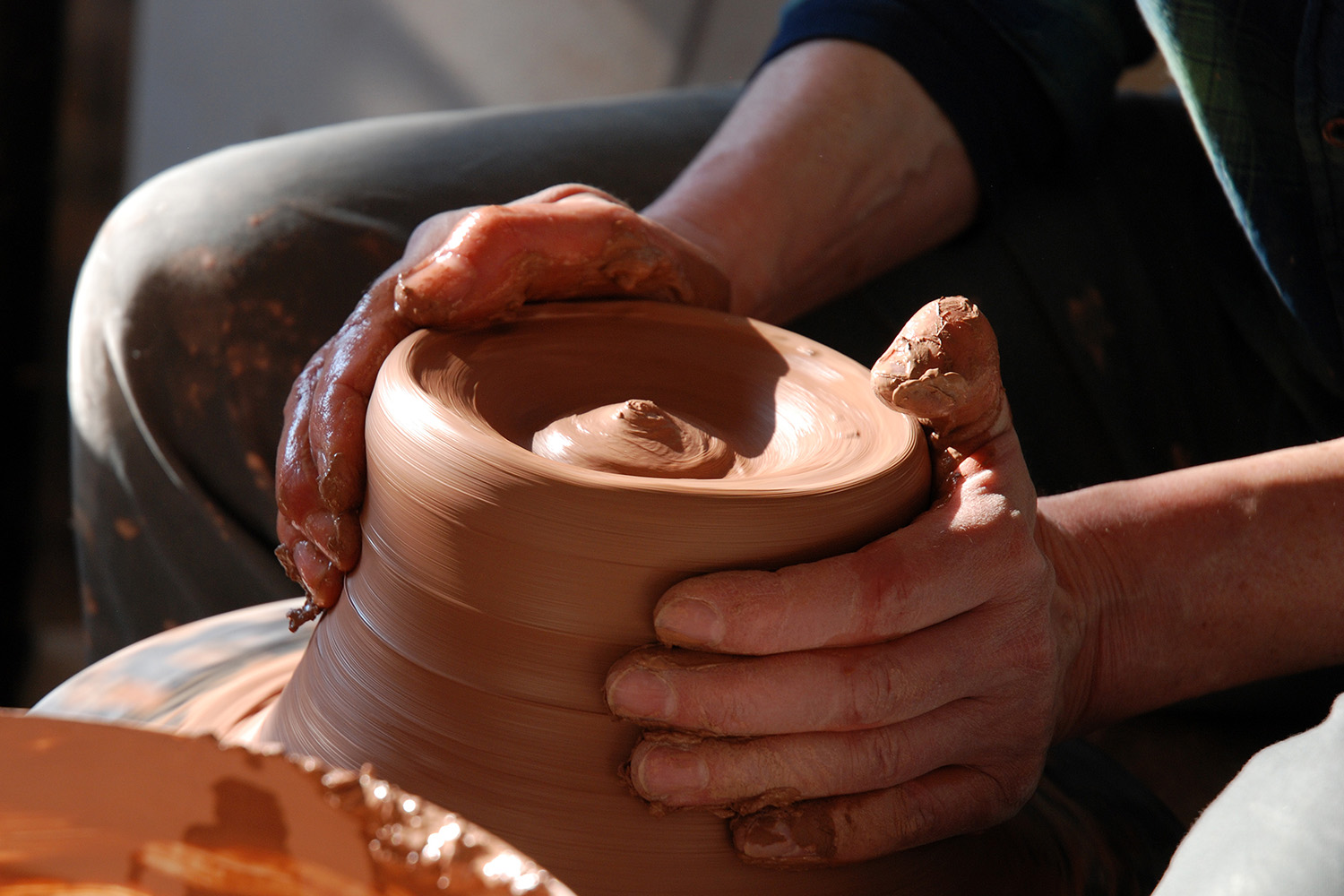
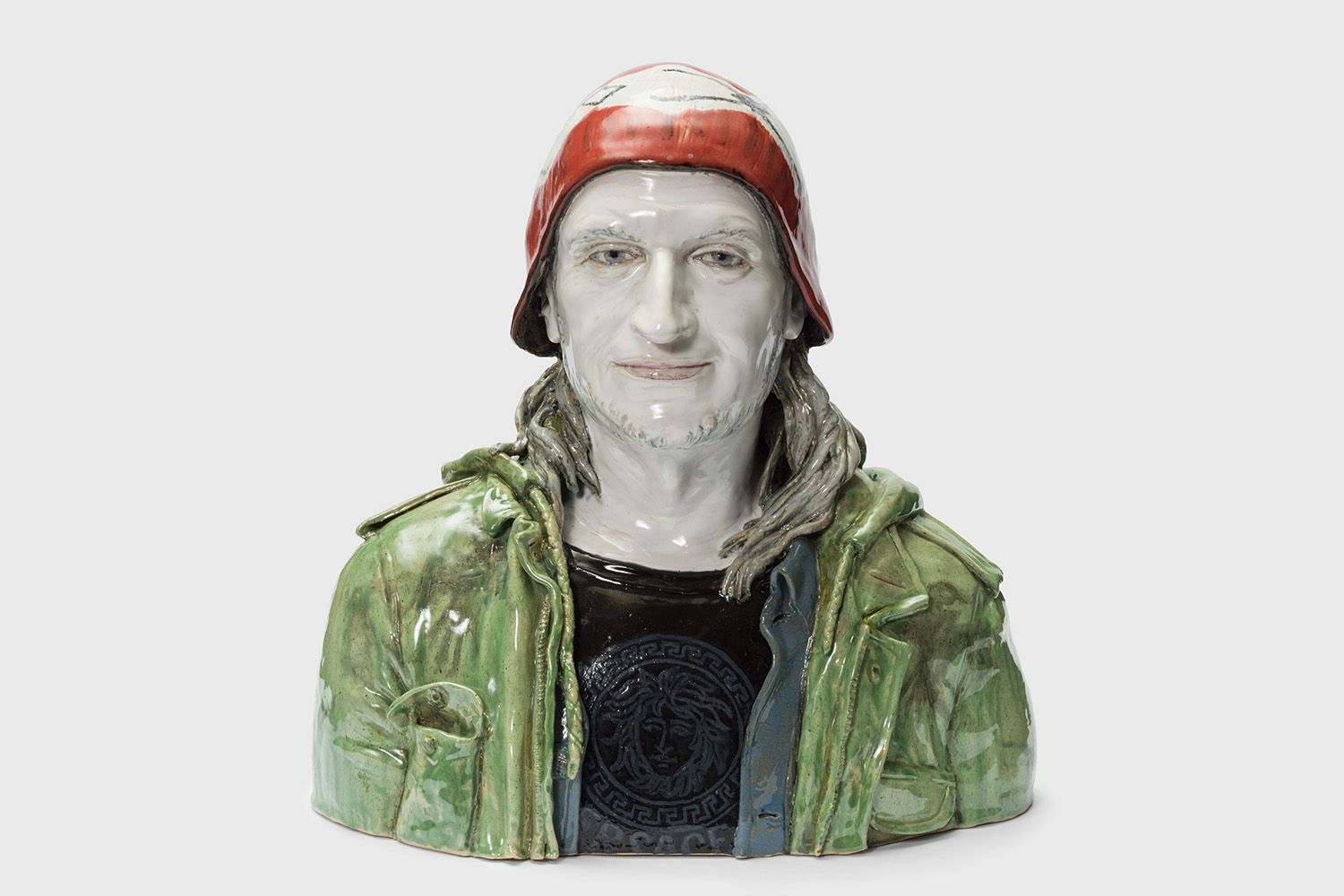





Engineer turned ceramicist
- Rosi creates figurative ceramics
- She was an engineer before becoming an artisan
- She has had her workshop since 1996
Rosi Steinbach’s journey with clay began as a child when her father brought home different kinds of clay one day. With her brother, Rosi made hand puppets, modelling clay heads and sewing clothes for them. She grew up and studied engineering. One day, she met Claudius Gabriel, a Burg Giebichenstein-trained ceramicist, who gave her a list of potteries in Germany. After backpacking up to the north of Germany and training with Rudi Markuske in Uckermark, Rosi returned to work with Gabriel in his workshop in Leipzig. “From him, I learned how to perfect my technique and a lot about shapes and design. I was particularly taken with faience and figurative ceramics that were created at the time at the College of Visual Artists in the Schaddelmühle near Grimma.” In 1990, Rosi acquired a certification as a potter and she has had her own workshop since 1996.
Interview
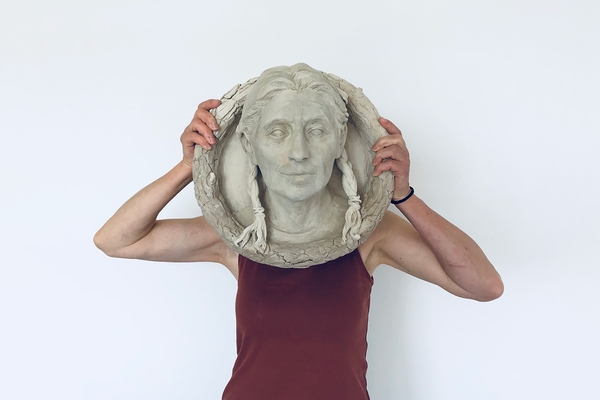
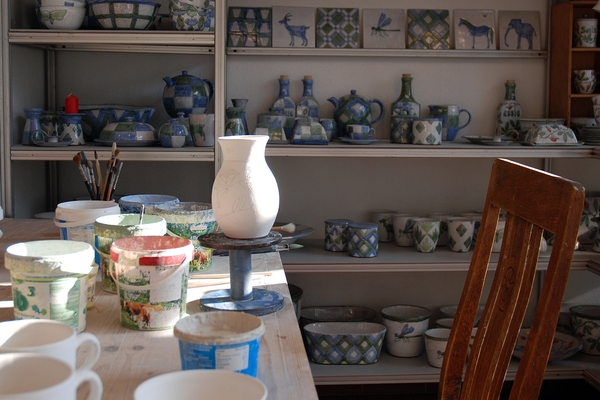
- Who or what motivated you to become a ceramicist?
- I had graduated as an engineer and was attending night school at the Dresden Art Academy. Then, in a café in Leipzig, I met Claudius Gabriel, a ceramicist who was in the process of setting up a workshop in Leipzig. I knew I wanted to work for him.
- What makes ceramics interesting to you?
- What is interesting and perhaps also problematical about working with ceramics are the almost limitless possibilities of shaping, surface design and colouring. The accessibility for everyone on the one hand, and the potential for high specialisation in terms of materials and techniques on the other.
- What remains hidden from the eye of the beholder?
- What you cannot see is all the mental work that goes into a piece. Product development, work organisation, devising and trying out strategies, logistics, taking care of sales and exhibition opportunities, customer care and bureaucracy take up a large part of an artist's and craftsperson’s time.
- Why do you train people?
- An apprentice at the potter's wheel usually produces hardly usable results at first. Over the three years of training, however, one has reliable help, and it is a pleasure to accompany the learning process.
Rosi Steinbach is a master artisan: she began her career in 1990 and she started teaching in 2000
Where
Rosi Steinbach
